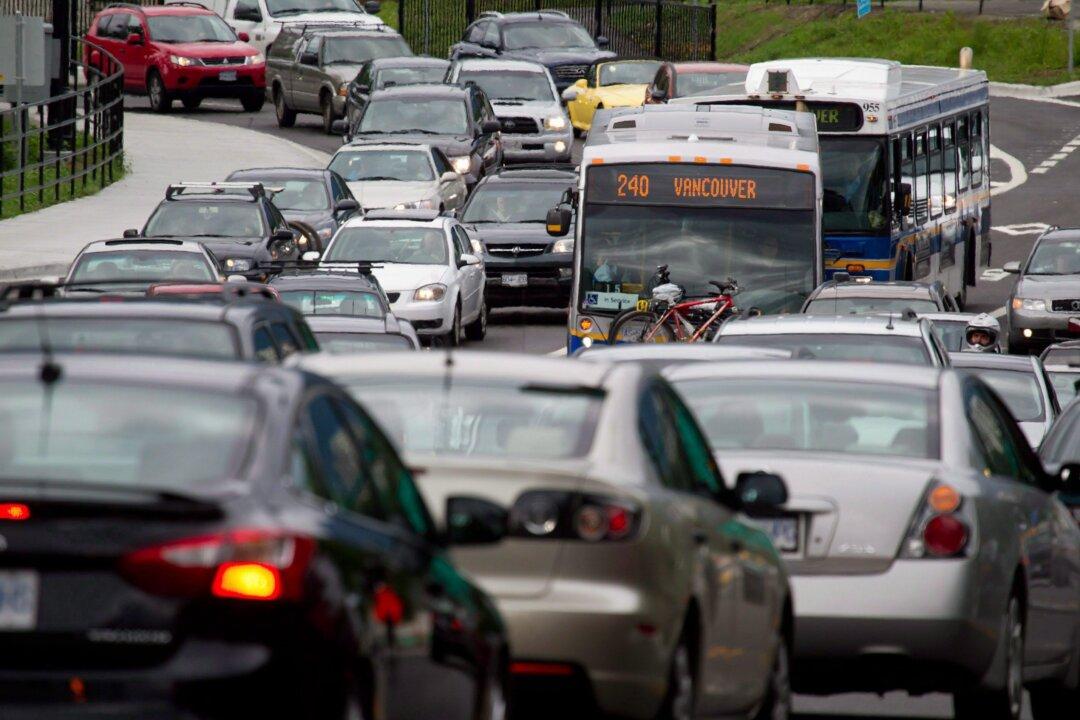OTTAWA—Cities worldwide are experiencing ever-higher levels of congestion, and Canada is no exception. Several Canadian cities made it onto this year’s global index from GPS maker TomTom, which ranked traffic congestion in over 200 cities around the world.
TomTom’s data, which was based on individual GPS car usage, showed that traffic congestion nearly doubles journey times during the evening rush hour. In 2014, the average Canadian commuter lost 84 hours while delayed in traffic in Toronto, Vancouver, and Montreal.
The index ranked Vancouver at 20, Toronto 47, Ottawa 59, Montreal 75, Edmonton 97, and Calgary 101 when it comes to congestion. Worldwide, the most congested cities were Istanbul, Mexico City, Rio de Janerio, Moscow, and Salvador.
But Benjamin Dachis, senior policy analyst at the C.D. Howe Institute, says that while there have been numerous studies that have attempted to track congestion, the issue is far more complex and costly than many estimate.




